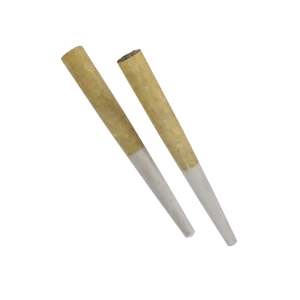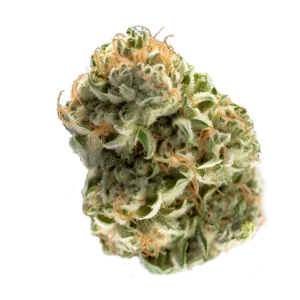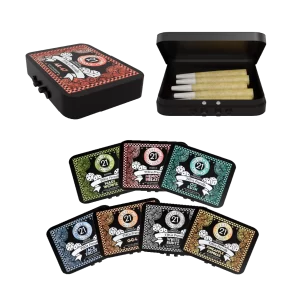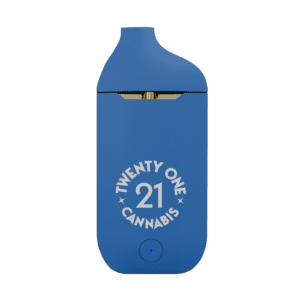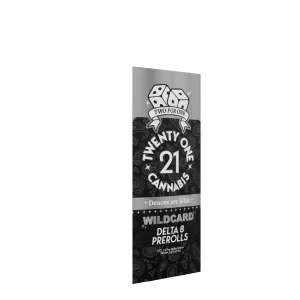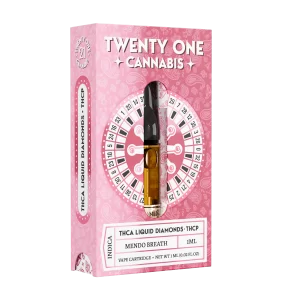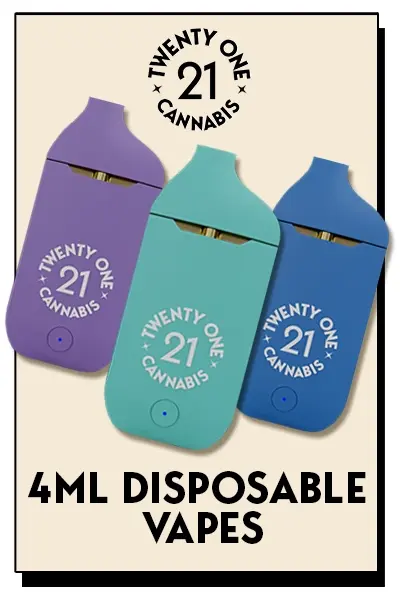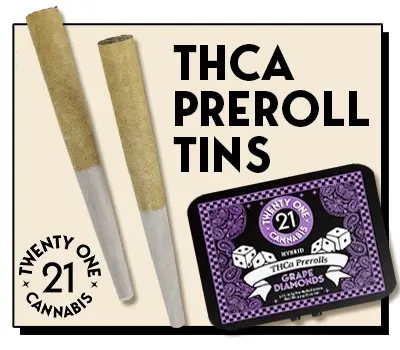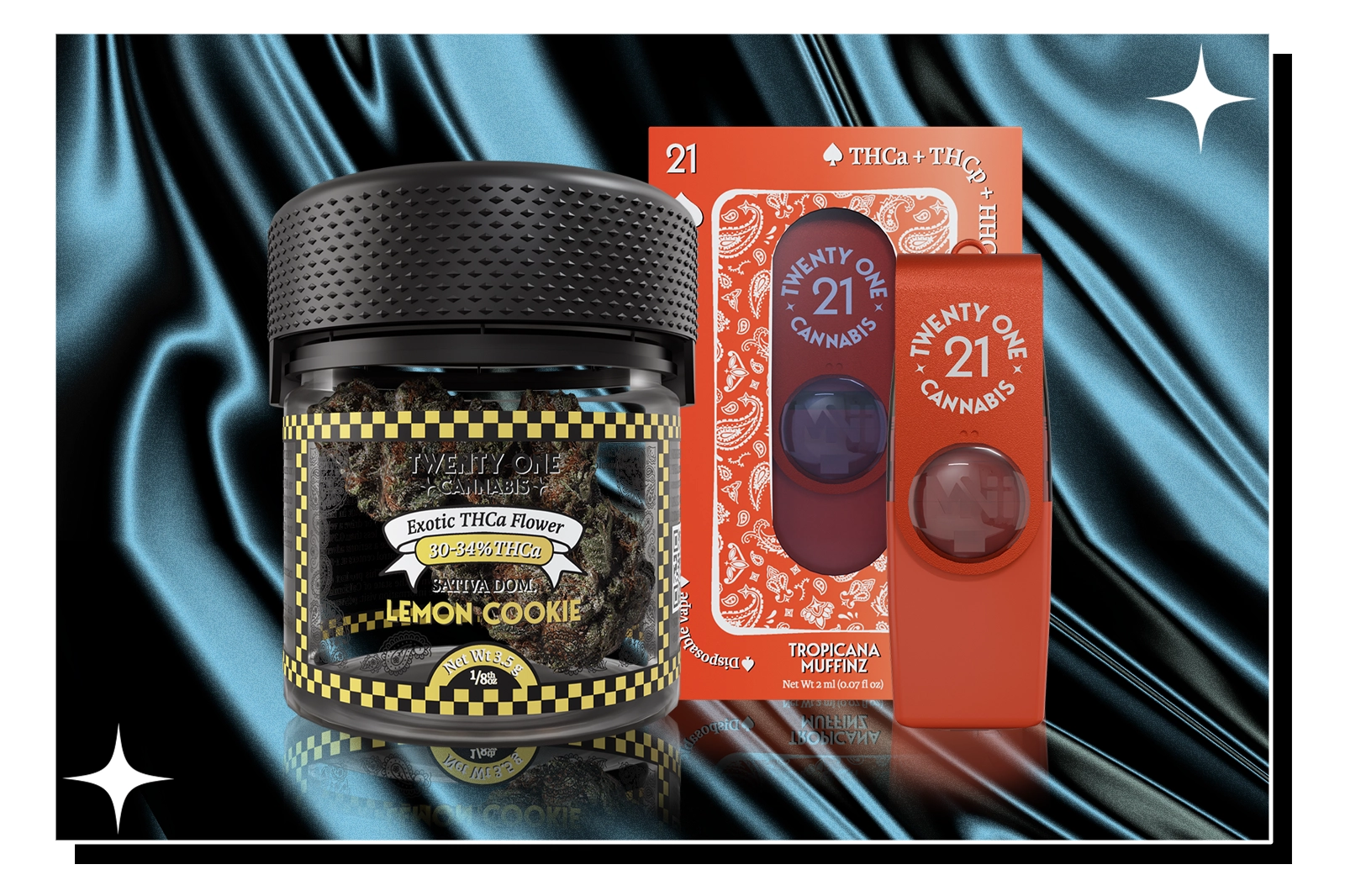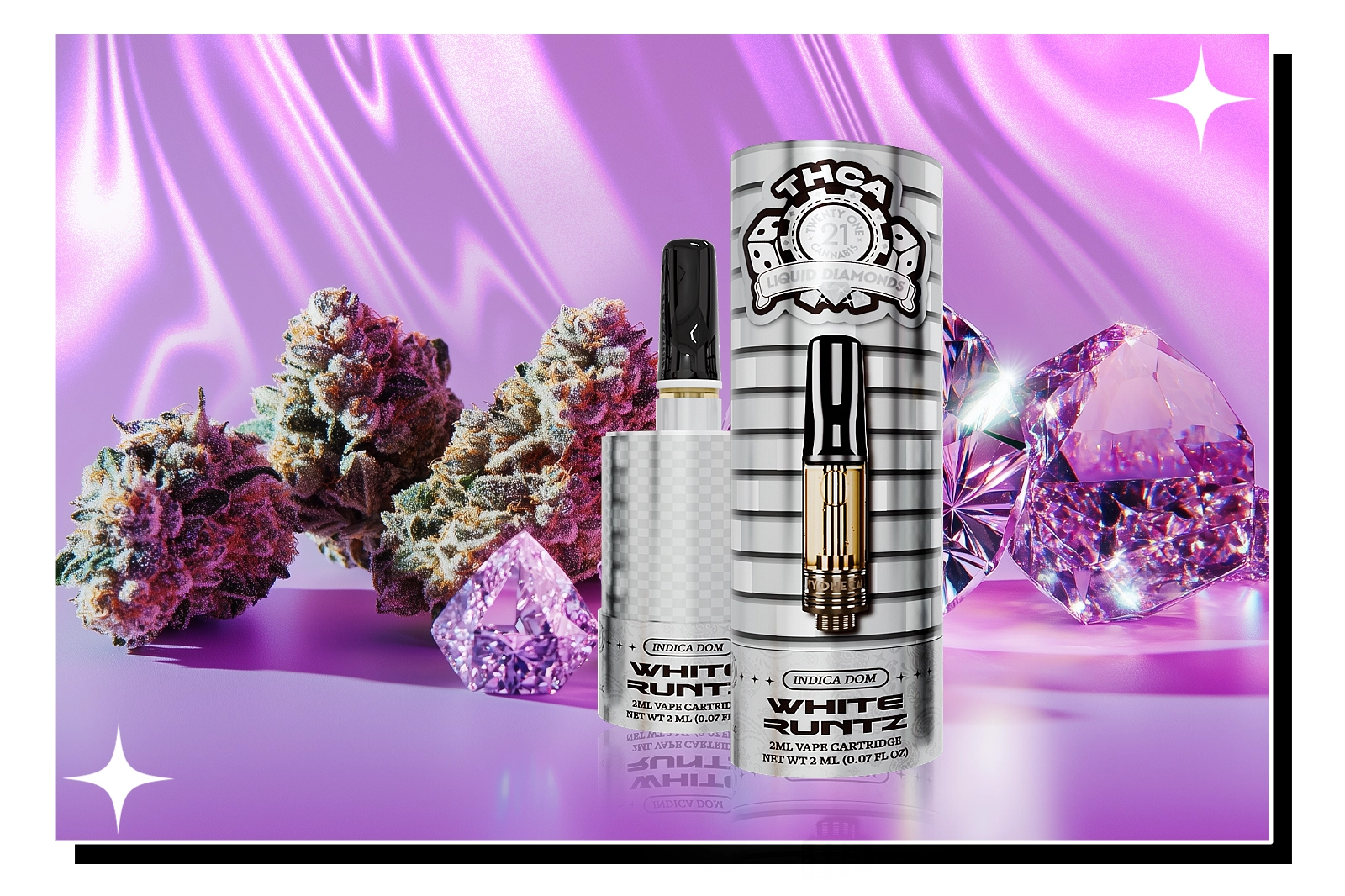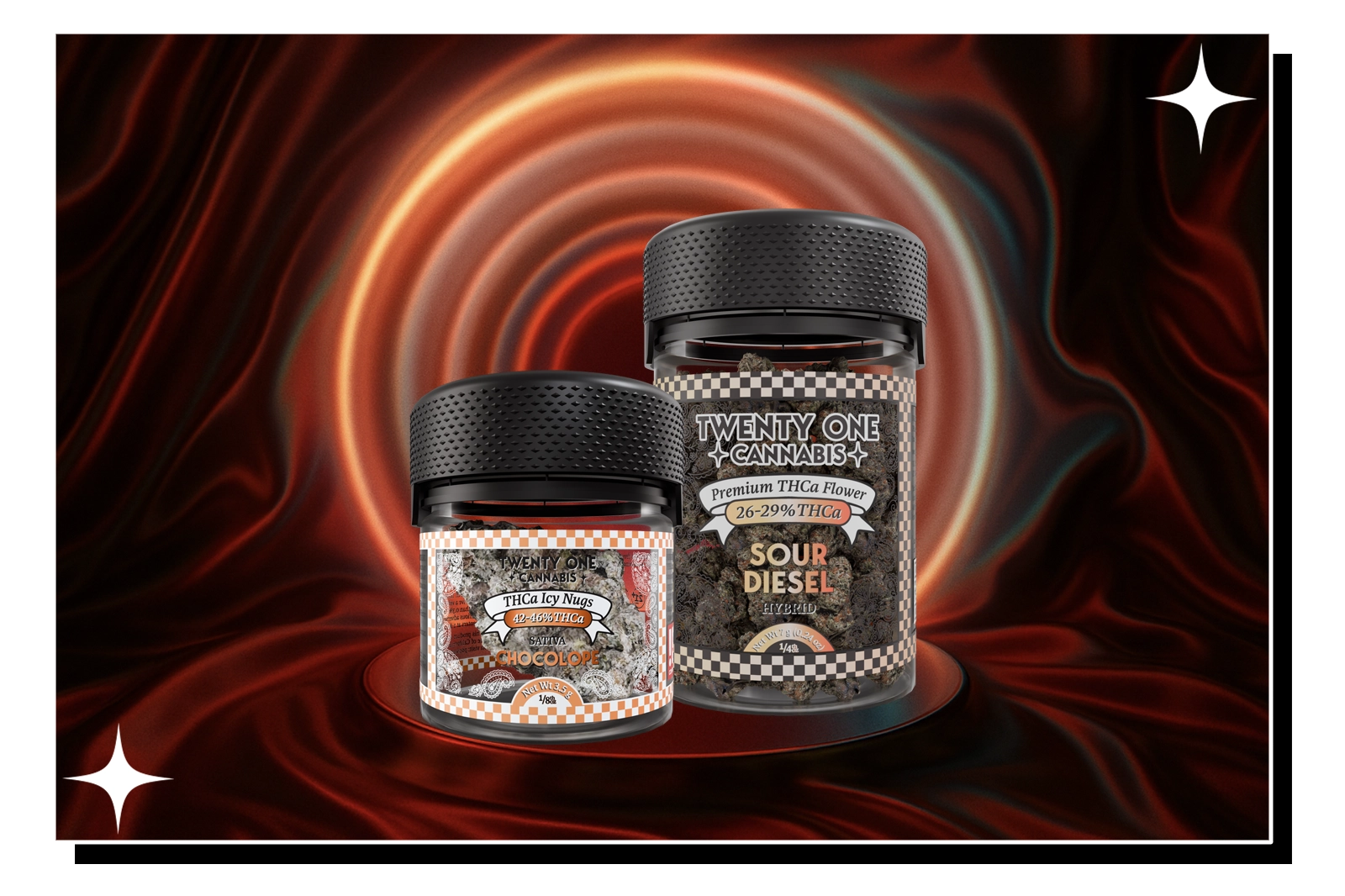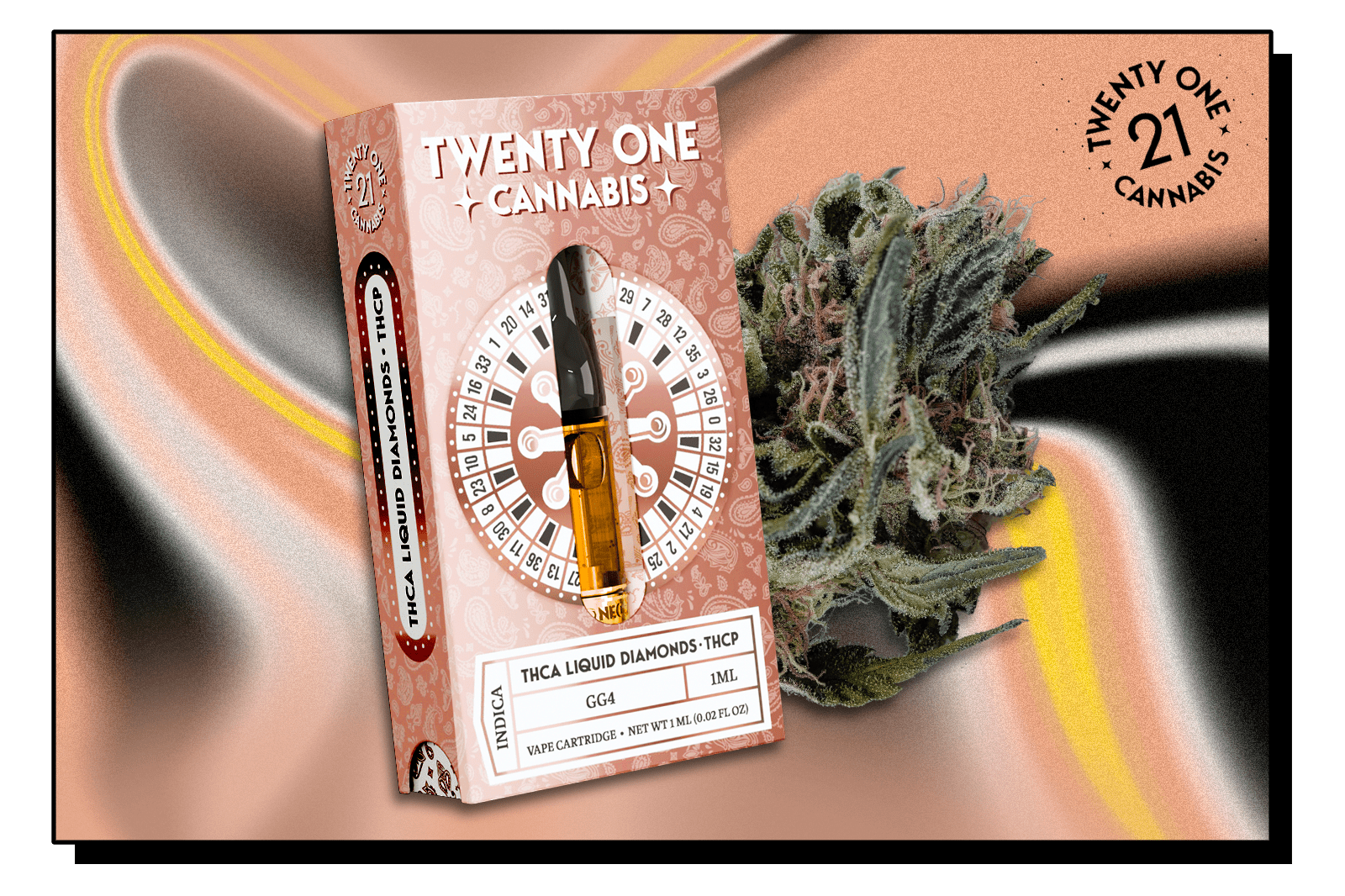
THCA vs. THCB: Key Differences & Similarities

In this Article
The High Rollers Source for THCa Delta 8 HHC
The cannabis plant is a complex source of numerous chemical compounds, each with unique properties and potential effects. Among these, cannabinoids are the most studied and recognized for their significant impact on the human body.
As research continues to expand our understanding of these compounds, new cannabinoids like THCA and THCB are gaining attention. While these two cannabinoids might look similar, the slight difference of acidity ends up creating varying effects.
Understanding these distinctions is essential for those interested in trying out these novel cannabinoids.
This article discusses the differences between THCA and THCB, two lesser-known cannabinoids, and their potential implications in the broader context of cannabis science.
Key Takeaways
- THCA is a non-psychoactive cannabinoid found in raw cannabis, converting to THC when heated, offering potential anti-inflammatory and neuroprotective benefits.
- THCB is a rare cannabinoid with psychoactive effects similar to THC, known for its euphoria and potential pain relief.
- The primary difference between THCA and THCB lies in their psychoactivity: THCA is non-psychoactive, while THCB produces intoxicating effects.
- THCA must be consumed without heating to maintain its non-psychoactive properties, while THCB can be enjoyed through traditional methods like vaping or smoking.
- Consumers should start with low doses of either cannabinoid to understand their unique effects and interactions with the body.
- Looking for premium THCA products? Dive into our catalog of lab-tested, premium THCA flowers and disposable vapes at TwentyOne Cannabis.
What is THCA?
THCA, or tetrahydrocannabinolic acid, is a non-psychoactive cannabinoid found in raw cannabis. It is the precursor to THC, the well-known psychoactive compound, and only converts to THC through a process called decarboxylation, which occurs when cannabis is heated.
THCA is typically abundant in fresh cannabis plants and is associated with various potential therapeutic properties, including anti-inflammatory, neuroprotective, and antiemetic effects.
Unlike THC, THCA does not produce a “high,” making it of particular interest for medical use where psychoactivity is undesirable. Research into THCA is ongoing, exploring its potential benefits and applications in medicine.
Benefits of THCA
While research into THCA is still in its early stages, some studies suggest it may offer several potential therapeutic benefits:
- Potential Anti-inflammatory Properties: THCA may help reduce inflammation in the body, which could be beneficial for conditions like arthritis or inflammatory bowel disease.
- May Offer Neuroprotective Effects: Some research indicates THCA might protect brain cells from damage, potentially making it useful in treating neurodegenerative disorders.
- Could Help Reduce Nausea and Vomiting: Like THC, THCA has shown promise in alleviating nausea and vomiting, particularly in patients undergoing chemotherapy.
If you’re interested in experiencing the potential benefits of THCA for yourself, check out the range of THCA products available at TwentyOne Cannabis, including raw cannabis juices, tinctures, and capsules. Just remember, to maintain THCA’s non-psychoactive properties, these products must be consumed without heating.
What is THCB?
THCB, or tetrahydrocannabutol, is a rare cannabinoid found in cannabis. It has a chemical structure very similar to THC, with one key difference: THCB has a butyl side chain, while THC has a pentyl chain. This slight variation in structure is believed to give THCB a potency comparable to THC.
Despite its scarcity in the plant, THCB has gained attention for its unique effects and potential benefits. As research continues to explore the properties of this lesser-known cannabinoid, consumers are becoming increasingly curious about how it compares to more familiar compounds like THC and CBD.
Effects of THCB
Like THC, THCB is known to produce psychoactive effects. Users report feelings of euphoria, altered perception, and increased sensory awareness. However, some anecdotal evidence suggests that THCB’s high may be slightly different from THC’s, with a more clear-headed and focused experience.
In addition to its recreational appeal, THCB may offer potential therapeutic benefits. Preliminary studies indicate that THCB could have analgesic and anti-inflammatory properties, making it a promising candidate for pain management. It may also promote feelings of relaxation and calmness, which could be helpful for those dealing with stress or anxiety.
As with any cannabinoid, the effects of THCB can vary depending on factors like dosage, individual physiology, and tolerance. If you’re interested in trying THCB for yourself, start with a low dose and pay attention to how your body responds before increasing your intake.
How Do THCA and THCB Compare?
While both THCA and THCB are cannabinoids found in the cannabis plant, they have distinct differences that set them apart.
Chemical Structures
THCA and THCB have slightly different chemical structures. THCA has an extra carboxyl group attached to its molecule, while THCB features a shorter side chain compared to THC. These structural variations influence how each cannabinoid interacts with the body’s endocannabinoid system.
Psychoactivity
One of the most significant differences between THCA and THCB is their psychoactivity. THCA is non-psychoactive in its raw form and must be converted to THC through decarboxylation (heating) to produce the “high” associated with cannabis use.
In contrast, THCB is inherently psychoactive, meaning it can elicit intoxicating effects without undergoing any chemical changes.
Benefits
When it comes to consuming THCA and THCB, there are different approaches to consider. To experience the potential benefits of THCA, such as its anti-inflammatory and neuroprotective properties, you can explore raw cannabis products like juices, tinctures, or capsules.
Remember to consume these products without heating to maintain THCA’s non-psychoactive state. THCB, on the other hand, can be enjoyed through more traditional consumption methods like smoking, vaping, or ingesting edibles.
THCA vs. THCB: Which is More Potent?
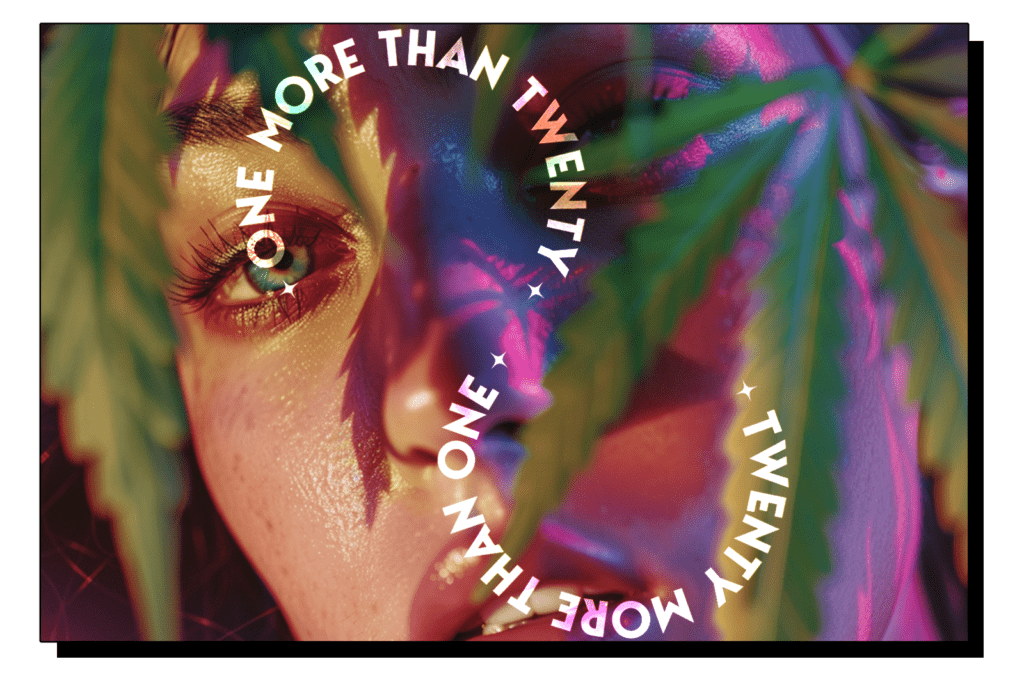
When comparing the potency of THCA and THCB, it’s important to understand their unique properties and how they interact with your body’s endocannabinoid system.
THCB, with its structural similarity to THC, is believed to have a potency comparable to the well-known psychoactive cannabinoid. This means that consuming THCB can produce intoxicating effects similar to those experienced with THC, such as euphoria, altered perception, and increased sensory awareness.
On the other hand, THCA is non-psychoactive in its raw form. It must undergo a process called decarboxylation, which involves heating, to convert into THC and become psychoactive. This means that consuming raw THCA, such as in cannabis juices or tinctures, won’t produce the “high” typically associated with THC.
Interestingly, the strength of THCB is thought to be comparable to another rare cannabinoid called THCP (tetrahydrocannabiphorol). THCA and THCP have distinct differences in their chemical structures and effects on your body. While THCP is known for its extremely high potency, estimated to be up to 30 times stronger than THC, THCA is valued for its potential therapeutic benefits without the intoxicating effects.
When deciding between THCA and THCB, consider your desired experience and the potential benefits you’re seeking. If you’re looking for a more potent psychoactive effect, THCB might be the choice for you. However, if you’re interested in exploring the potential therapeutic properties of cannabinoids without the “high,” raw THCA products could be a better fit.
As with any cannabinoid, start with a low dose and observe how your body responds before gradually increasing your intake. Everyone’s endocannabinoid system is unique, so finding the right balance of THCA or THCB may require some experimentation and patience.
How to Consume THCA and THCB
When it comes to consuming THCA and THCB, you have several options to choose from, each with its own unique benefits and considerations.
Inhalation
Inhalation methods, such as smoking or vaporizing, are popular choices for consuming cannabinoids. However, it’s important to note that heating THCA through these methods will convert it to THC, resulting in psychoactive effects. If you’re looking to experience the potential benefits of THCA without the “high,” inhalation may not be the best option.
On the other hand, THCB can be effectively consumed through inhalation, as it is inherently psychoactive. Disposable vapes offer a convenient and discreet way to enjoy THCB, while THCA flower can be smoked or vaporized for a more traditional cannabis experience.
If you’re looking for a quality THCA disposable vape with a citrusy flavor, the White Runtz THCA disposable vape can be a great option. It offers a rich, earthy citrus flavor with sweet berry undertones. This indica-dominant strain is known for delivering profound relaxation and euphoria, making it ideal for unwinding after a long day. The vape combines THCA liquid diamonds with Delta-8 and HHC for potent effects, including enhanced creativity and heightened sensory perception.
Need something more tropical? The Pineapple Express THCA Diamonds disposable vape offers a vibrant tropical flavor profile with notes of mango, pineapple, and citrus. As a sativa-dominant strain, it is well-known for its uplifting and energizing effects, making it an ideal companion for an active lifestyle. The THCA Liquid Diamonds provide potent, euphoric sensations and heightened creativity, while the blend of Delta-8 and HHC enhances the overall experience.
If disposables aren’t what you’re looking for, a potent flower like Chemdawg might just do the trick. The Chemdawg THCA Flower is a potent strain known for its pungent, diesel-like aroma with hints of earthy pine. It offers strong cerebral effects, making it a favorite among those seeking mental stimulation and creativity. This strain is often chosen for its ability to provide a balanced experience of relaxation and euphoria, making it suitable for both daytime and evening use.
Edibles
Edibles provide a unique opportunity to consume THCA in its raw form without converting it to THC. By incorporating raw cannabis products, such as juices or tinctures, into your edibles, you can experience the potential therapeutic benefits of THCA without the psychoactive effects.
THCB edibles, on the other hand, will produce intoxicating effects similar to those of THC. When consuming THCB edibles, start with a low dose and wait at least an hour before consuming more, as the effects can take longer to kick in compared to inhalation methods.
Is THCB Legal?
The legal status of THCB is a bit of a gray area and varies depending on where you live. In some regions, THCB may be subject to the same laws and regulations as THC due to its psychoactive properties. This means that in areas where THC is illegal, THCB may also be prohibited.
However, the specifics of THCB legality can be complex and often depend on factors such as the source of the cannabinoid (hemp-derived vs. marijuana-derived) and the concentration of THC in the final product. In some jurisdictions, hemp-derived THCB may be legal under certain conditions, such as if it contains less than 0.3% THC by dry weight.
It’s important to familiarize yourself with the specific laws and regulations regarding THCB in your area before purchasing or consuming any products containing this cannabinoid. This can help you make informed decisions and avoid potential legal issues.
If you’re unsure about the legality of THCB in your region, consider reaching out to local cannabis advocacy groups or legal professionals who specialize in cannabis law. They can provide guidance and help you navigate the complex landscape of cannabinoid legality.
What Is the Best Way to Experience the Benefits of THCA and THCB?
When exploring the world of THCA and THCB, it’s important to approach these cannabinoids responsibly and with a focus on your well-being. Start by consuming THCA and THCB in moderation, giving your body time to adjust and respond to their unique effects.
As you embark on your journey, begin with low doses to assess your personal tolerance and observe how each cannabinoid makes you feel. This mindful approach allows you to gradually find the optimal balance that works for your individual needs and preferences.
Prioritize high-quality, lab-tested products from reputable sources to ensure you’re getting safe, potent, and consistent THCA and THCB. Look for brands that value transparency and provide detailed information about their manufacturing processes and testing results.
When it comes to THCA, consider exploring raw cannabis products like juices, tinctures, or capsules. These options allow you to experience the potential benefits of THCA without the psychoactive effects associated with THC. If you’re interested in THCA concentrates, discovering the best temp for THCA diamonds can help you optimize your experience and preserve the unique properties of this cannabinoid.
For those curious about THCB, disposable vapes offer a convenient and discreet way to enjoy its effects. THCA flower is another popular option, providing a more traditional cannabis experience while harnessing the potential of this lesser-known cannabinoid. Understanding how THCA flowers are made can deepen your appreciation for the craftsmanship behind these products.
As you explore the world of THCA and THCB, you may find yourself comparing them to other cannabinoids like HHC or THC diamonds . Each offers its own unique set of effects and benefits, so take the time to educate yourself and find the best fit for your needs.
Remember, the key to experiencing the benefits of THCA and THCB is in responsible consumption, starting slow, and choosing high-quality products. Liquid diamonds , for example, offer a potent and flavorful way to enjoy THCA concentrates, while finding the best way to smoke THCA can help you maximize the potential of this unique cannabinoid.
Whether you’re seeking the therapeutic benefits of THCA or the psychoactive effects of THCB, understanding their differences and applications can help you make informed choices. Twenty One Cannabis offers a curated selection of high-quality, lab-tested products to meet your diverse needs.
Dive through our range of products at 21Cannabis today to find the perfect fit for your cannabis experience.
Sources for this Article
- ncbi.nlm.nih.gov/pmc/articles/PMC5731255/
- ncbi.nlm.nih.gov/pmc/articles/PMC5510775/
- webmd.com/mental-health/addiction/what-is-thca
- mdpi.com/2223-7747/13/12/1619
- researchgate.net/figure/Effect-of-THCB-10-and-20-mg-kg-ip-in-the-tetrad-test-A-Time-line-of-the-tetrad_fig2_338298322
- mellowfellow.fun/blogs/learn/what-is-thcb-cannabinoid
- pubs.acs.org/doi/abs/10.1021/acs.jnatprod.9b00876
-
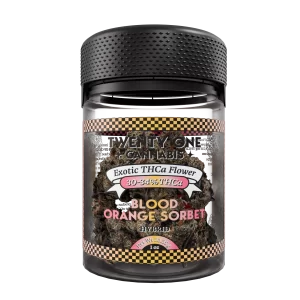
THCa Flower Jar – Blood Orange Sorbet (hybrid) – 1 OZ Exotic
$239.99 -
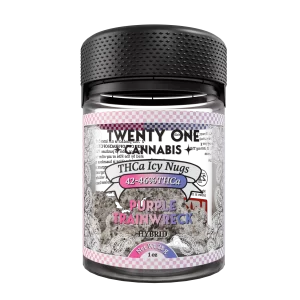
THCa Flower – Icy Nugs 1 oz Jars – Purple Trainwreck (Hybrid)
$269.99 -
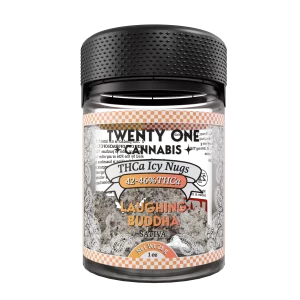
THCa Flower – Icy Nugs 1 oz Jars – Laughing Budda (Sativa)
$269.99 -
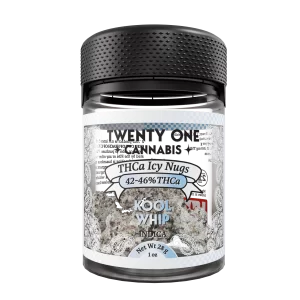
THCa Flower – Icy Nugs 1 oz Jars – Kool Whip (Indica)
$269.99 -
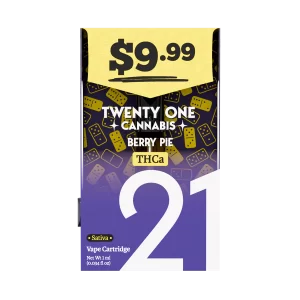
THCa 1ml Vape Cartridge – Berry Pie (Sativa)
$9.99 -
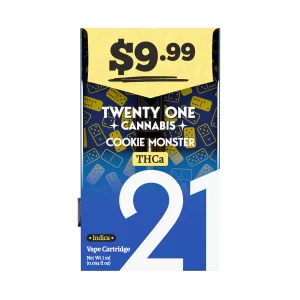
THCa 1ml Vape Cartridge – Cookie Monster (Indica)
$9.99
In this Article
Let's be social
More Heavy Hitting Posts
JOIN THE HIGH ROLLERS
Categories

Lindsey Goldstein

Peer Review by: JJ Coombs
Doctor of Pharmacy, Pharmaceutical Sciences University of Colorado
Co-Founder & CEO at Arvida Labs


